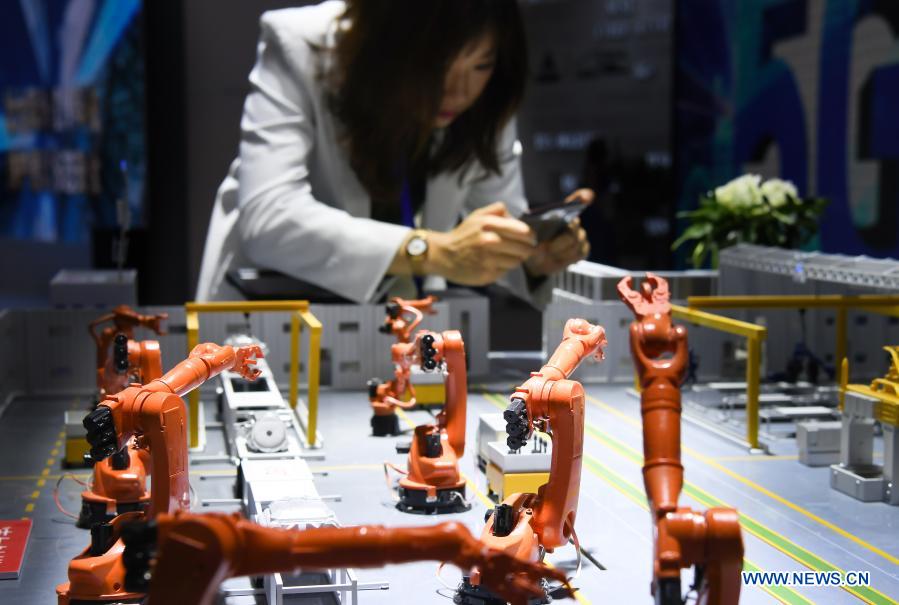China's Wuhan continues to expand digital economy
In recent years, Wuhan, capital of central China's Hubei province, has seen rapid growth in its digital economy, including intelligent transportation, intelligent logistics, online healthcare and online education.

A visitor takes pictures of equipment models on display at an exhibition during the "China 5G + Industrial Internet Conference" in Wuhan, central China's Hubei Province, Nov. 19, 2020. [Xinhua/Cheng Min]
The added value of Wuhan's digital economy last year accounted for about 40 percent of the city's GDP, and the growth rate of the added value in key industries of the digital economy exceeded the growth rate of its GDP by 8 percentage points, according to statistics.
The city has taken concerted actions to realize its goal of building itself into a first-tier city of digital economy, as well as a vital hub in the industrial chain, value chain and innovation chain of the global digital economy.
With the first batch of 5G base stations put into operation in August 2019, the city now has a total of 25,000 5G base stations in use, achieving continuous high-quality coverage of the signal within the Third Ring Road and key coverage in remote urban areas.
In addition, a space-based Internet of Things project has been launched in the city, and a TT&C (telemetry, track and command) center has been officially completed. The number of top node registrations in Wuhan for national industrial Internet identifier resolution is also on the rise.
Hundreds of patients in Ezhou, Hubei province, have benefited from positron emission tomography/computed tomography (PET/CT) equipment known as a "cancer early warning device" put into operation in June last year, with their cancer focus accurately identified in advance through a series of parameters.
"The all-digital PET/CT equipment has become increasingly popular. Previously, it was adopted for a patient every four days, while now there is an average of five patients using it for tests every day," said Xie Qingguo, inventor of the PET/CT and professor of Huazhong University of Science and Technology in Wuhan.
Xie explained that the breakthrough in producing the first domestically-invented medical device is bound to usher in booming development in this field.
Thanks to its solid digital economy foundation, Wuhan has fostered a number of national innovative achievements in the field of digital economy, including the manufacturing of the world's first 128-layer QLC flash memory chip as well as major breakthroughs in key generic technologies such as 800G ultra-high-speed silicon optical chip.
"Thanks to information and digital construction, we have adopted a stereoscopic storehouse as the central warehouse as well as an automated sorting system, and established a fast-response logistics network that can support daily order shipments from 150,000 to 200,000 during peak periods," disclosed Luo Yiqun, deputy general manager of the information technology division of Bestore Co., Ltd., a leisure snack brand headquartered in Wuhan.
























